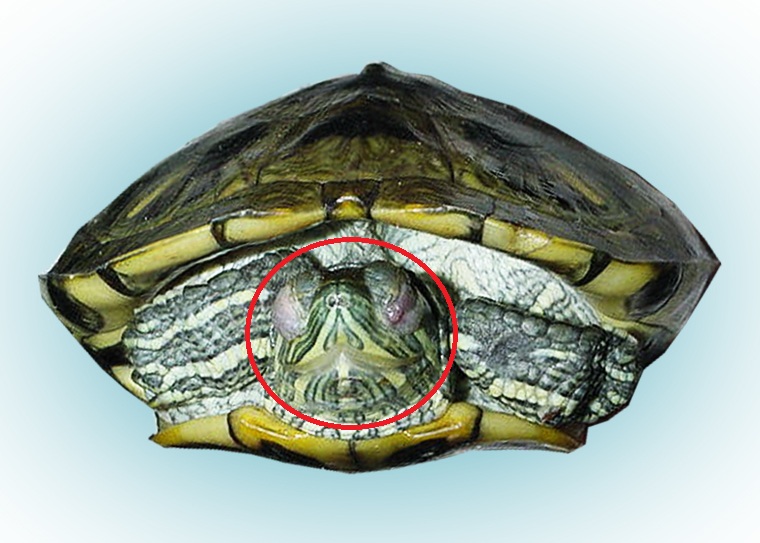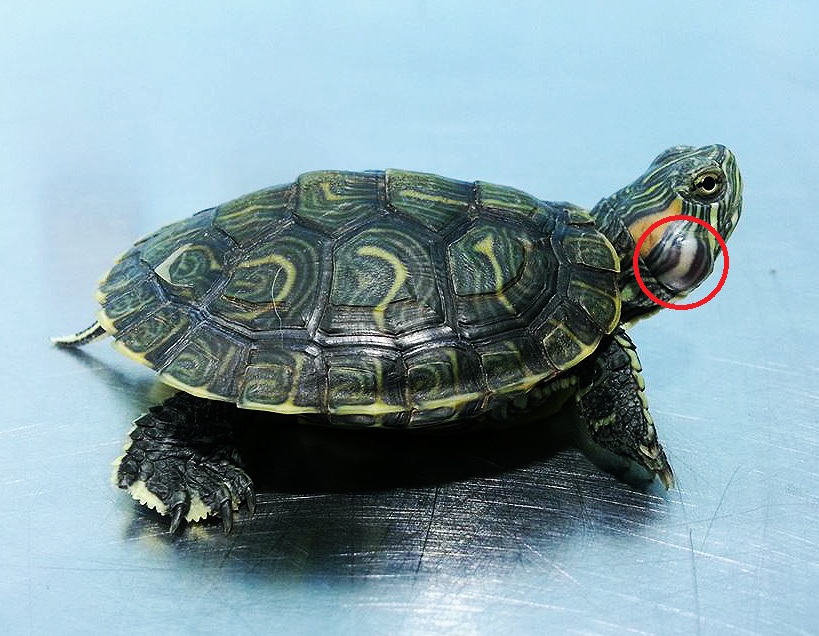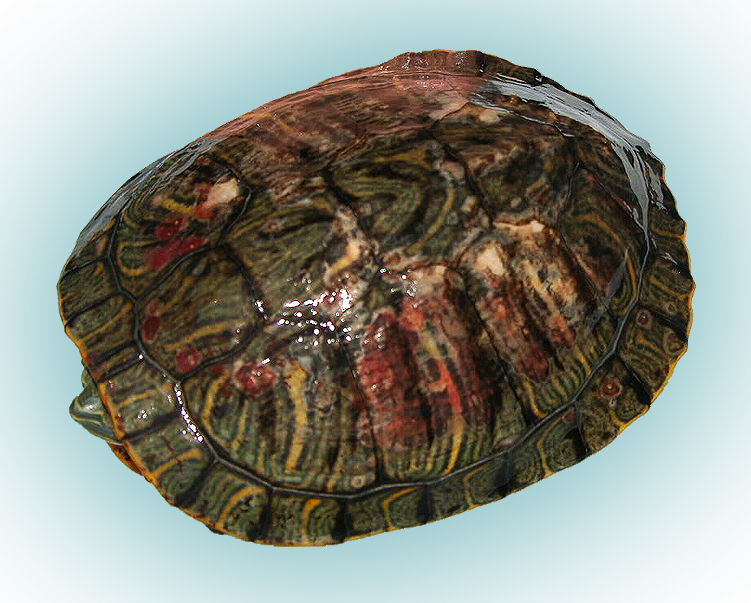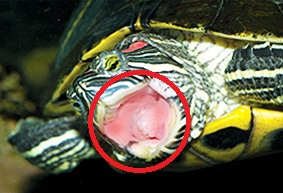Diseases & Treatments
Freshwater Turtles Disease, Infections & Treatements
Captive water turtles are prone to bacterial infections because malnutrition and poor hygiene are common. Furthermore, injuries received by water turtles tend to become readily infected because of the frequently high bacterial counts in their aquatic environments.
1. Respiratory Infections:
Upper respiratory disease and pneumonia are very common among water turtles. Signs may include nasal discharge, swollen eyes, sneezing, coughing, gasping, open-mouth breathing, lethargy, weakness and tilting to one side. Antibiotic therapy and supportive care are required in these serious cases.

2. Swollen Ears (Abscess):
Infection of 1 or both external ear canals may accompany chronic respiratory disease in turtles. Minor surgery is necessary to open up the infected canal and manually remove the pus that accumulates within it. Injectable antibiotics are given to ensure that the underlying respiratory problem completely resolves.

3. Septicemia (Blood Poisoning):
A host of bacteria can cause severe body-wide infections in water turtles. Minor infections, such as those caused by wounds, often become worse as bacteria travel throughout the body by way of the bloodstream. Malnourishment weakens the turtle's resistance and the infection spreads. As vital organs become involved, the turtle's condition deteriorates and other signs appear. Extreme redness of the skin and bleeding into the skin are often noted in water turtles with septicemia Aggressive antibiotic therapy and supportive care are required to treat these serious cases.

4. Shell Rot:
Defects of the shell may result from direct injury or as a consequence of malnutrition, generalized deterioration, and infection. Bacteria or fungi may cause infections of the shell. Shell rot may also occur from eating shellfish containing disease-causing bacteria. Algae may grow in shell rot defects or can themselves cause shell rot Algae may also grow on the carapace (top shell) of normal, healthy water turtles. This usually indicates poor water quality in the turtle's enclosure. Treatment usually involves restricting the turtle's access to the water, giving appropriate supportive care, and use of topical and injectable medication (antibiotics, vitamin A). The amount of time required for recovery depends on the number and severity of shell rot defects requiring treatment.

5. Mouth Rot:
Bacterial infection of the mouth lining (mouth rot or infectious stomatitis) is usually associated with malnutrition or body-wide illness. Excessive salivation and redness of the mouth lining are .early signs of mouth rot. As the disease progresses, cheese-like pus accumulates within the mouth. An objectionable odor from the mouth may be detected as well. Injectable antibiotics, vitamins and appropriate supportive care, including periodic cleaning of the mouth, are necessary in the treatment of his serious condition.

6. Salmonellosis:
Before water turtles became common pets, they were frequently housed in ponds and septic tanks contaminated with human sewage and other types of waste. Continual exposure of these turtles to potentially harmful intestinal bacteria allowed the turtles to carry the infection without becoming ill.

7. The human handlers (frequently children) of these turtles usually do not have the same degree of resistance. Salmonella and other harmful intestinal bacteria, transferred through handling, resulted in numerous cases of human salmonellosis, a severe, often life-threatening disease of the intestinal tract. Public health laws now require that water turtles with a carapace (upper shell) diameter of less than 4 inches cannot be shipped into or sold in the US, with certain exceptions. The risk of a person's contracting salmonellosis from a pet water turtle is low. However, you should always wash your hands after handling a water turtle or cleaning its enclosure. Samples from your water turtle can be cultured by your veterinarian to see if it carries Salmonella or related bacteria, if you are especially concerned.
Ref.: Animals Hospitals - USA